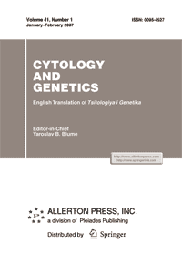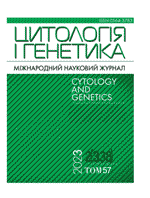Effects of ammonium sulphate [(NH4)2SO4] on mitosis, cell cycle and chromosomes in Vicia faba L. seeds exposed to extreme temperatures were investigated using flowcytometric and cytogenetic analysis. Seeds germinated at high and low temperatures showed a significant decrease in mitotic index as compared to those of optimum temperature conditions. Application of 50 and 1000 µM (NH4)2SO4 were successful in alleviating the negative effects of low and high temperature on mitotic activity, respectively. 50 µM (NH4)2SO4 showed the most positive effect on cell cycle at the extreme temperatures. This concentration increased the cell division removing or decreasing the negative effects of temperature stress. Namely, the highest G2/M and S phase percentages under stress conditions were obtained with application of 50 µM (NH4)2SO4. Chromosomal aberrations were not observed in cells of seeds germinated in distilled water and also at any temperatures. However, the frequency of chromosomal aberrations increased significantly by increasing (NH4)2SO4 concentration. The highest aberration frequency in all temperature degree tested was found at 1000 µM (NH4)2SO4 concentration.
Keywords: cell cycle progression, chemical fertilizers, chromosomal abnormalities, flowcytometry, mitotic activity, temperature stress

